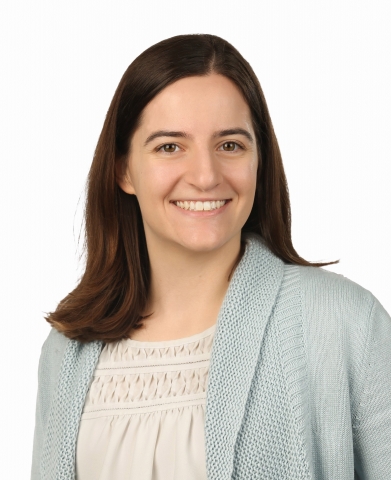University of Virginia PhD student Gigi Pavur uses hydrological data collected from satellites to evaluate the consequences of natural disasters on Earth -- and hopes to use that information someday to improve outcomes. It was a thrill that the ARCS Scholar Award allowed her the opportunity to recently attend an internship in Vienna, Austria, with the United Nations Office for Outer Space Affairs (UNOOSA).
Pavur takes data from NASA to understand disasters and related environmental challenges in various regions on Earth. One of her research projects was to study water data from Lake Victoria, the largest freshwater lake in Africa. The lake basin impacts Kenya, Rwanda, Tanzania, Burundi, and Uganda, so Pavur studied flooding and drought events in that basin. She also looked at hydrology data for southern US states impacted by Hurricane Ian in 2022. Her third project is looking at water scarcity in Iraq. “A highlight of this project has been the opportunity to work with USACE, USAID, other students at UVA, and even members of the Iraqi government,” she explains. “We are taking an interdisciplinary approach to look at how climate change and different disasters related to water scarcity affect their populations.”
“Our studies aim to improve hydrological understanding of these events and to model risk with particular attention to vulnerable populations that are almost always disproportionately affected by hydrometeorological extremes,” she says. She is in the fourth year of her PhD in Civil and Environmental Engineering.
“One benefit of using satellite data is that it’s collected globally, so theoretically, you can do studies like these anywhere in the world,” Pavur says. “I like to think that the sky is quite literally the limit.”
Working with the immense amount of remote sensing data from NASA requires specific skills. “There are capacity building efforts, especially provided by NASA, to help people learn to use the data,” Pavur says. “In my research group at UVA, we mostly use Python scripts and mapping software to process, analyze, and visually represent the data.”
Pavur says she is inspired by the work of the NASA Applied Sciences Program to use space-based research with societal applications around the world for disaster response and risk reduction.
Pavur recently returned from her internship in Vienna with the United Nations Office for Outer Space Affairs. “I feel as though the stars aligned for me because, without the ARCS Scholar Award, this opportunity would not have been possible. Thanks to ARCS, I spent five weeks working with the United Nations Office for Outer Space Affairs (UNOOSA) in Vienna, Austria,” she explains. Her five weeks spent in Vienna added to her increasing excitement about UNOOSA's space efforts to promote sustainable development on Earth.
“I’m not 100% sure where my career will lead me after graduate school, but I’m hopeful to continue finding ways to stay involved with UNOOSA’s efforts regardless – such as through programs like Space4Women, Space4Water, Space4Youth, and even the World Space Forum,” Pavur says.

